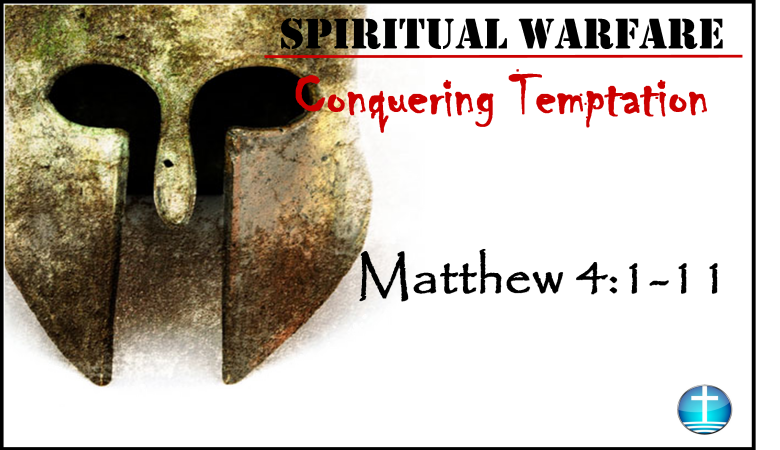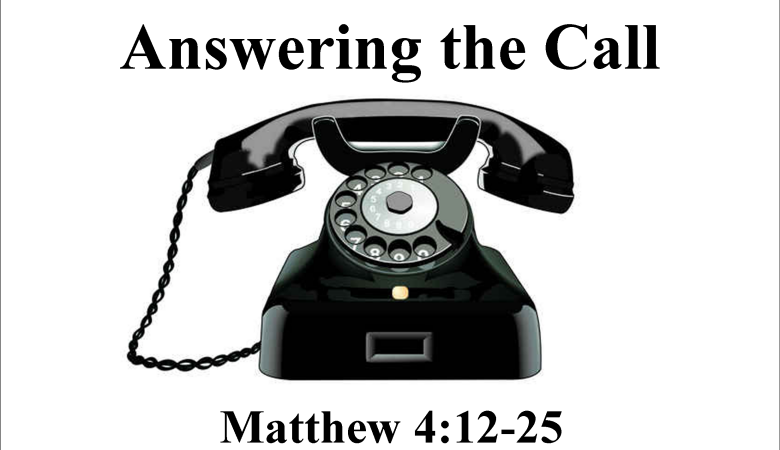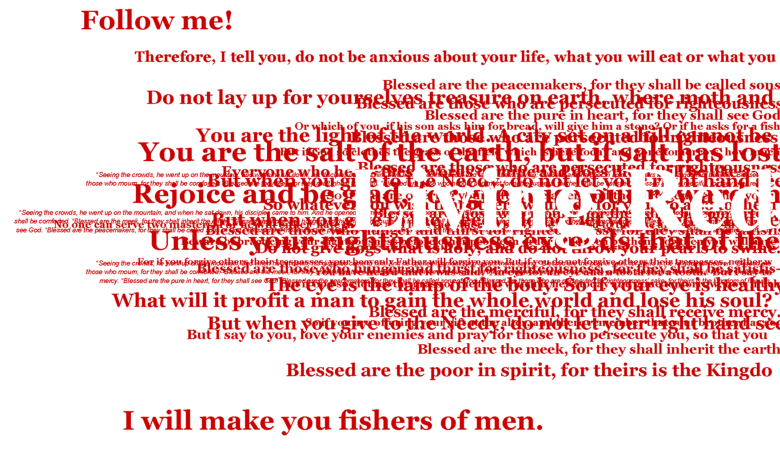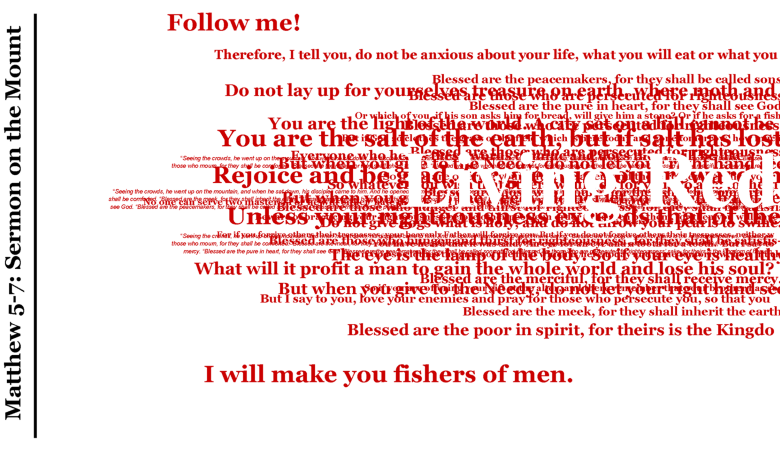Matthew 6:22-23, The Lamp of Life
“The eye is the lamp of the body. So, if your eye is healthy, your whole body will be full of light, but if your eye is bad, your whole body will be full of darkness. If then the light in you is darkness, how great is the darkness!” (Matthew 6:22–23, ESV)
Demas: A flamed out Comet caught in the Allure of the World’s Seducing Pull
If ever there was a guy you’d have a hard time labeling as “worldly,” it would be Demas. Or so it seems. As a close firend and traveling companion to the Apostle Paul, Demas participated in spreading the gospel and strengthening the fledgling church throughout the Roman Empire. He left home and family to hit the long, dusty and dangerous road with the itinerant apostle. He stood by Paul – likely at great personal risk – when the apostle landed in prison that first time. We read of him sending his greetings with the Apostle Paul from prison to the churches in Colossae and to the Christian Philemon.
He would appear to be a model Christian. A guy we would all admire, respect, and want to emulate.
Yet there is an interesting post script in Paul’s second letter to Timothy which forms poor Demas’ epitaph:
“For Demas, in love with this present world, has deserted me and gone to Thessalonica.” (2 Timothy 4:10, ESV)
It’s impossible to read them without feeling the Apostle Paul’s sadness and heart ache. What a tragedy! A life wasted. A testimony ruined. Jesus portrayed to the world as less than absolute loveliness. Jesus portrayed as just not worth it. For Demas, in love with this present world, not only deserted Paul, the saints, and his church- he deserted the Saviour!
What happened? How did Demas go from passionate follower of Christ, close companion to the apostle Paul, willing to risk all for the sake of Jesus to deserter? Where did things go horribly wrong?
Before Demas deserted, he drifted.
“For all that is in the world—the desires of the flesh and the desires of the eyes and pride of life—is not from the Father but is from the world.” (1 John 2:16, ESV italics added)
The Eye is the Lamp of the Body
“The eye is the lamp of the body.” (Matthew 6:22, ESV)
What does Christ mean when he speaks of the eye as the lamp and the body as being full of light? How can an eye be a lamp and how can the body be full of light?
The idea here is simple but beautiful. The eye is pictured as the window through which the light comes into the body. If a window is clean and the glass is clear, the light that comes in will properly light every part of the room. If the window is dirty, or if the glass is uneven or tinted or discolored, the light will be hindered, and the room will not receive the full benefit of the light. The amount and quality of the light that comes into a room depends on the condition of the eye.
Jesus is saying that the light that comes into a man’s soul depends on the spiritual condition of the eye through which the light passes.
Sandwiched between the command to lay up treasures in heaven (6:19-21) and the warning that you can't serve God and money (6:24) are the strange words about the eye being the lamp of the body. If the eye is good (literally: "single"), the whole body will be full of light. But if the eye is bad, the body will be full of darkness. In other words: How you see reality determines whether you are in the dark or not.
Now why is this saying about the good and bad eye sandwiched between two teachings on money? I think it's because the specific thing about seeing that shows the eye is good is how it sees God in relation to money and all it can buy. In 6:19-21 the issue is: you should desire heaven-reward not earth-reward. Which, in short, means: desire God not money. In 6:24 the issue is whether you can serve two masters. Answer: You cannot serve God and money.
This is also revealed to us in the Old Testament. Consider the teaching of the sages in Proverbs 28:22,
“A man with an evil eye hastens after wealth And does not know that want will come upon him.” (Proverbs 28:22, NASB95)
“Do not eat the bread of a man who is stingy; do not desire his delicacies,” (Proverbs 23:6, ESV) Literally, “…the bread of a man who has an evil eye.”
“Take care lest there be an unworthy thought in your heart and you say, ‘The seventh year, the year of release is near,’ and your eye look grudgingly on your poor brother, and you give him nothing, and he cry to the Lord against you, and you be guilty of sin.” (Deuteronomy 15:9, ESV) Literally, the text reads, “…and your eye become evil on your poor brother.”
What a Bad Eye Means for You
“…but if your eye is bad, your whole body will be full of darkness.” (Matthew 6:23, ESV)
Proposition: A Selfish Spirit will keep you out of Heaven.
1. The Rich Ruler and Eternal Life.
When the rich ruler asked Jesus what he must do to inherit eternal life, Jesus responded, “Sell all that you have and distribute to the poor, and you will have treasure in heaven; and come, follow me,” (Luke 18:18, 22). This seems to make eternal life dependent upon being free from the love of money and being generous to the poor. This is indeed what Jesus is saying, as we can see from the fact that when the man who was “extremely rich” (Luke 18:23) turns away, Jesus says, “How difficult it is for those who have wealth to enter the kingdom of God! For it is easier for a camel to go through the eye of the needle than for a rich person to enter the Kingdom of God,” (Luke 18:24-25).
The disciples then ask, “Who then can be saved?” The disciples equate “inheriting eternal life” and “entering the kingdom of God” with being saved. And they note that it has to do with selfishness. Jesus response is not to say, “Salvation and selfishness have nothing to do with each other.” Jesus doesn’t say this, and his interaction with the rich man indicates that salvation and selfishness are closely related. Rather, in responding to the disciples, Jesus says, “What is impossible with men is possible with God,” (Luke 18:27). In other words, only God can change the selfishness that keeps a man out of heaven. It is clear that this man’s love of money kept him out of heaven, for the text says, “This man went away sorrowful, for he had great possessions,” (Mark 10:22).
2. The Rich Man, the Beggar, and Two Destinies – Luke 16:19-20
Jesus said, “There was a rich man who was clothed in purple and fine linen and who feasted sumptuously every day. And at his gate was laid a poor man named Lazarus, covered with sores. The poor man wanted just a crumb from the rich man’s table, but the picture we get is that the rich man was oblivious or disdainful to the poor at his very door. So Jesus describes the death and afterlife of both men: “The poor man died and was carried to the angels to Abraham’s side. The rich man also died and was buried, and in Hades, being in torment, he lift up his eyes and saw Abraham far off and Lazarus at his side,” (Luke 16:22-23). In other words, Jesus is saying that the selfish indifference of the rich has landed him hell.
3. Failure to Live with Money results in Eternal Judgment – Matthew 25:31-46
In Matthew 25:31-46 Jesus warns that a professing follower of his who is indifferent to the needs of the poor will endure “eternal punishment.” When the King (representing Jesus in this story) pronounces this dreadful sentence over the selfish “disciples” they say, “Lord, when did we see you hungry or thirsty or naked or sick or in prison, and did not minister to you?” And the king answers, “Truly, I say to you, as you did not do it to one of the least of these, you did not do it to me!” Jesus gives the final word: “And these will go away into eternal punishment, but the righteous into eternal life,” (Matthew 25:44-46). In other words, a selfish spirit will keep us out of heaven.
4. The Rich Fool always Loses His Soul – Luke 12:18-19
Again, Jesus tells a parable of a rich fool. The man’s fields prosper, and he has more than he can use. Instead of thinking generously, he says, “I will tear down my barns and build larger ones, and there I will store all my graind and my goods. And I will say to my soul, Soul, you have ample goods laid up for many years; relax, eat, drink and be merry,” (Luke 12:18-19). To this selfish decision Jesus says that God responds with these words: “Fool! This night you soul is required of you, and the things you have prepared, whose will they be?” In other words, a selfish spirit led to the loss of his soul.
5. How to Lose True and Lasting Riches – Luke 6:1-9
Here is one last illustration of how a selfish spirit keeps us out of heaven. After the parable of the dishonest manager (Luke 16:1-9), Jesus draws out these conclusions:
““One who is faithful in a very little is also faithful in much, and one who is dishonest in a very little is also dishonest in much. If then you have not been faithful in the unrighteous wealth, who will entrust to you the true riches? And if you have not been faithful in that which is another’s, who will give you that which is your own?” (Luke 16:10–12, ESV)
What a Healthy Eye Means for You
“So, if your eye is healthy, your whole body will be full of light,” (Matthew 6:22, ESV)
Proposition: The degree to which you overcome your selfishness determines the degree of your reward in heaven.
Healthy from ‘haploús’ which means first of all, “simple,” or “single” or “singular,” “with no ulterior motive,” but then may also have a slightly different meaning, although related, with “open,” as in functioning correctly. [1]
Measures and Measurements
It appears from the Scriptures that God does measure the degree of our generosity, or conversely the degree to which we overcome the selfish spirit within us, and that He rewards based upon this degree.
“…give, and it will be given to you. Good measure, pressed down, shaken together, running over, will be put into your lap. For with the measure you use it will be measured back to you.”” (Luke 6:38, ESV)
Scholar R.C.H. Lenksi, commenting on this passage offers this profound insight:
Jesus explains this return measure by stating the principle on which it is given: “for with what measure you go on measuring it shall be measured to you in return: anti in the verb (antimetrethesetai) means in turn or back. In other words, by our giving we build the measure that will be used for giving back to us. By using it ourselves we declare that we want God to use it for us at the end… It is the measure we bring to God, and all He can do is to fill it. And fill it overflowing He will (“pressed down, shaken together, running over”)… Thus they who give nothing will receive even less, and they who give much their whole life long will receive vastly more. This is both justice and grace. [2]
The Widow’s Penny
An example of Jesus’ measuring with the Divine Measurement is found in the story about the Widow’s gift:
“And he called his disciples to him and said to them, “Truly, I say to you, this poor widow has put in more than all those who are contributing to the offering box. For they all contributed out of their abundance, but she out of her poverty has put in everything she had, all she had to live on.”” (Mark 12:43–44, ESV)
The point here is that the value of a gift is not measured by its size, but by its sacrifice. She put in “more” than all the others, Jesus said. Certainly she didn’t put in more than others in terms of quantity, but the “more” to which Jesus must be referring is the more of her own personal sacrifice. The reason for this is because sacrifice, as opposed to dollar amount, is a better measurement of where our heart is.
If you give much, but still have much left over to rest your hope in, to rest your confidence in, then your heart may easily rest in the remainder. But if you sacrifice for Jesus and have little left, then the heart has less to rest in. the heart is more likely to be resting in the hope of heaven. It is more likely to be depending upon Jesus rather than depending upon money.
[1] Gerhard Kittel, Gerhard Friedrich and Geoffrey William Bromiley, Theological Dictionary of the New Testament (Grand Rapids, MI: W.B. Eerdmans, 1985), 65.
[2] R.C.H. Lenksi, The Interpretation of St. Luke’s Gospel (Minneapolis: Augsburg, 1946), pg. 374-375.
Series Information
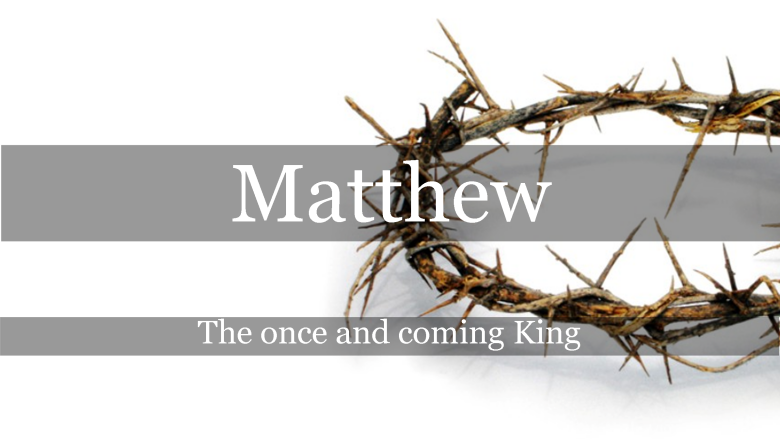
The Gospel of Matthew is a story about a once and coming King. Jesus of Nazareth is the Son of David, the long awaited for Messiah. He has come once, and Matthew tells the story of His arrival, ministry, sacrificial atoning work on the cross, and His promise to return soon.


